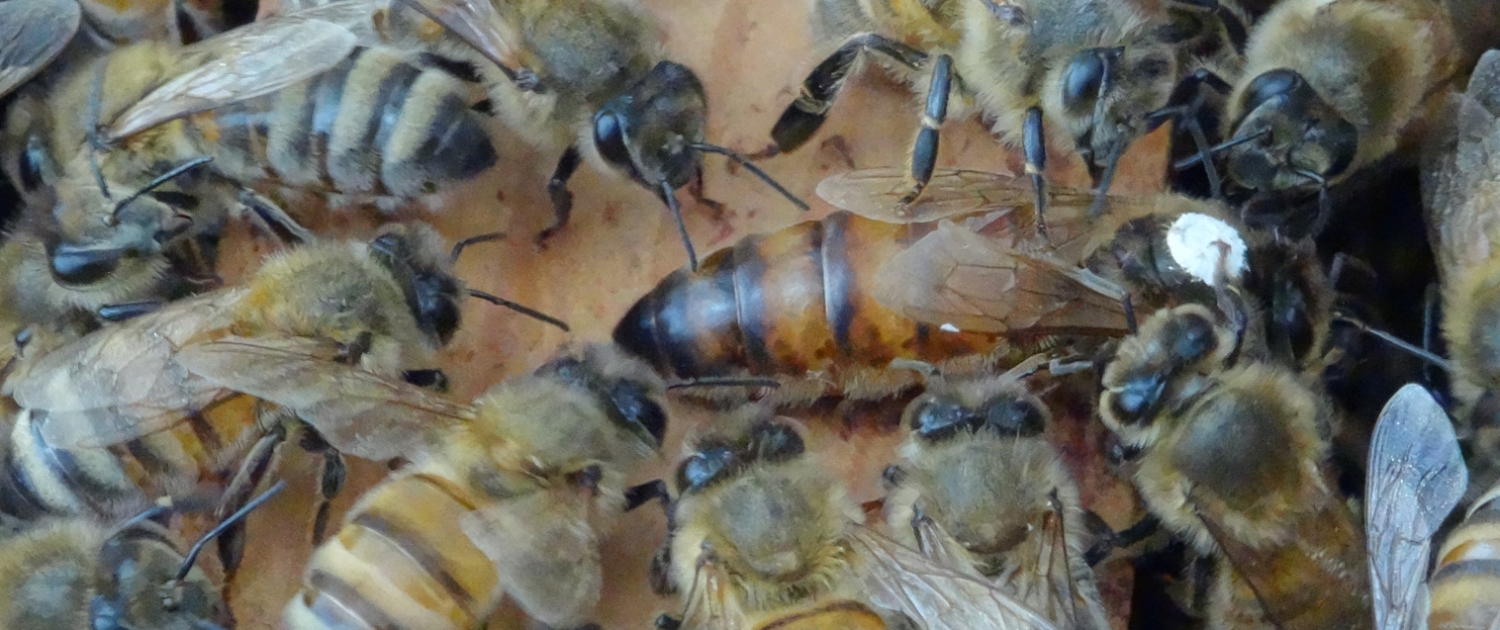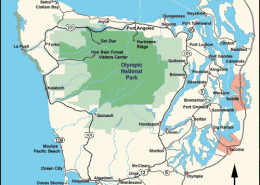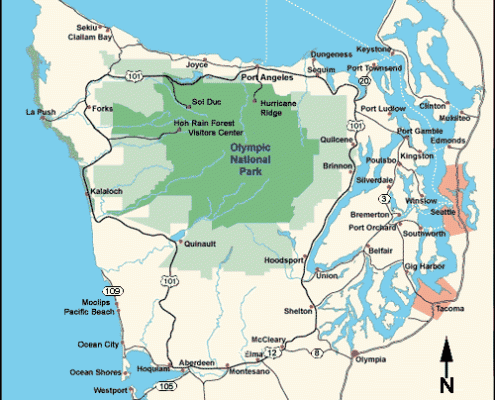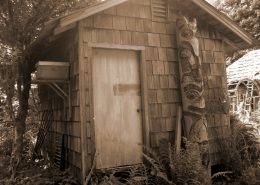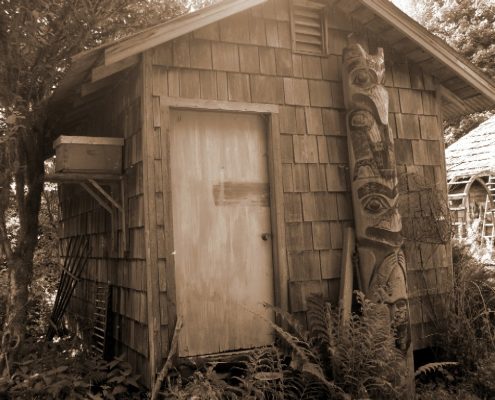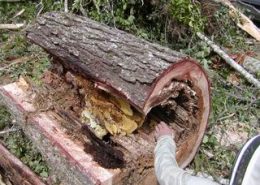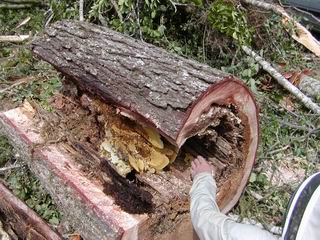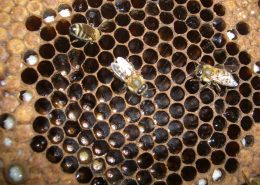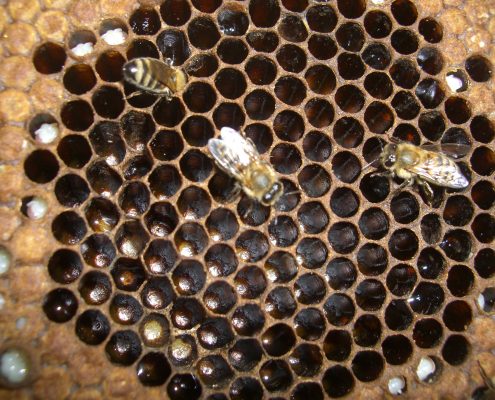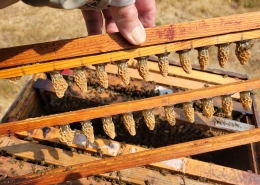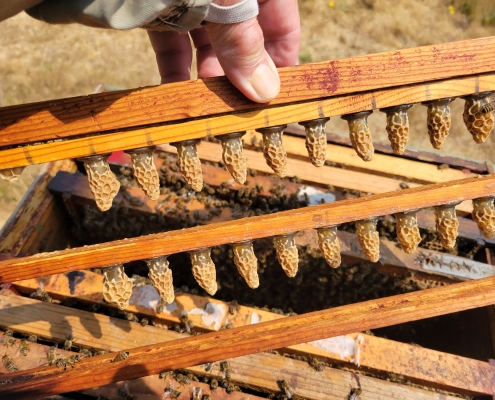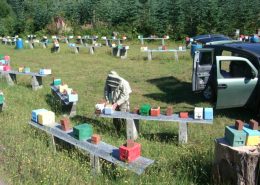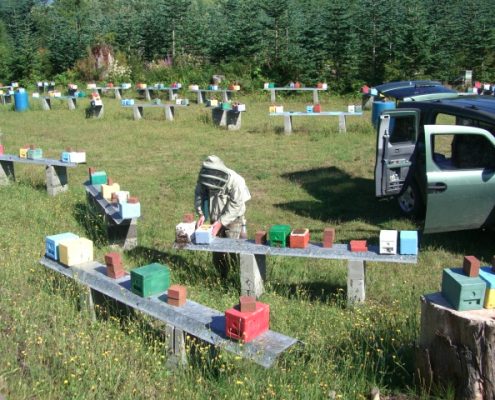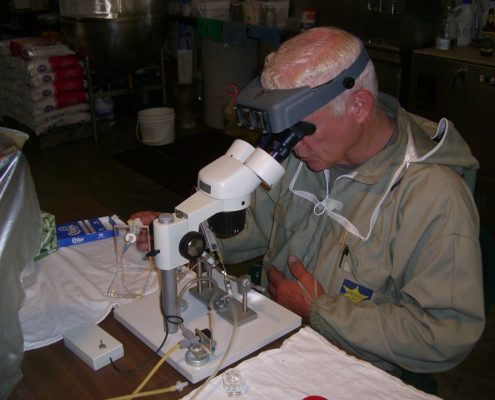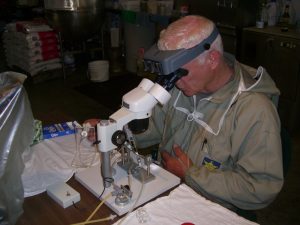FERAL HYBRID HONEYBEES – DISEASE & MITE RESISTANT
HOME OF THE “ORIGINAL” WILD SURVIVOR STOCK
PACIFIC NORTHWEST BRED HONEYBEE QUEENS
Over a Quarter Century – No Antibiotics or Synthetic Miticides
Enhance your Diversity with our Survivor Genetics
April 2025 UPDATE:
Commercial Beekeepers Reporting 62% Colony Loss … OWA Zero Losses over past two winters
Accepting orders now for 2025
To Order Call -360 928 3125
.
Since 1985 we had been operating a small apiary located in the challenging micro-climate of Washington State’s isolated North Olympic Peninsula: pollinating for family farms and supplying local specialty markets with pure raw honey.
… BUT in 1997 (when feral bee populations were thought to be near extinction due to varroa mites), the USDA Honeybee Stock Breeding Center sent out a universal call asking for “wild swarm” queens to be submitted to them … we realized we were uniquely situated to capture any genuinely-feral swarms that may have survived unmanaged for decades in these harsh conditions.
We began by setting out bait hives in remote locations whose oral history reported that honeybees had been introduced by early settlers in the 1800’s, successfully trapping several swarms. We submitted samples of our early captures for DNA analysis to Washington State University, and received oral confirmation that their mitochondrial markers indicated they belonged to a “cluster of bees” that included Italians; Carniolan; two genera of Greek bees; and Caucasians. The reliable history of the locations, and the color of the bees, confirmed our belief that they were most likely survivors of Caucasian stock that had been introduced to the area by those pioneer families … that was when our ORIGINAL WILD SURVIVOR BEE BREEDING-PROGRAM was born, and the real adventure began.
We continue to collect swarms; evaluate their resistance characteristics; and have gradually enhanced their performance with selective-inclusion of proven USDA Primorsky Russian; SMR/VSH; and WSU Caucasian lines to achieve a hardy feral-hybrid stock that continues to demonstrate genetics capable of withstanding many of the lethal pests and pathogens that are plaguing honeybees today.
What makes Olympic Wilderness Breeder Queens unique?
SELECTION CRITERIA
VARROA MITE RESISTANCE:
We regularly evaluate our colonies with the Alcohol Wash Assay method to select breeder stock from hives that consistently demonstrate their successful “Hygienic Characteristics ” in these 4 distinct categories
Brood Removal Behavior
-
- Efficient brood removal of disease and/or mite infected cells demonstrated by their ability to remove a minimum of 95% of killed brood in 24 hour
Defensive Grooming Behavior Video
-
- Watch our Survivor Bees detect & vigorously intercept a varroa mite on a returning forager!
Self-Grooming Behavior
-
- Introduced USDA tracheal-mite resistant drone semen via Instrumental Insemination (II). Monitored by Independent Lab testing.
Effective Housekeeping/Hygienic Behavior
-
- Demonstrated by clean bottom boards. Our stock collect and efficiently discard “waste products”.
NOSEMA TOLERANCE
Nosema Tolerance is due to highly adapted Pollen Hoarding Behavior
DYNAMIC HONEY PRODUCERS
Due to our short season, our bees have adapted to become voracious foragers, observed working at 42°F
SWARMING BEHAVIOR
Not prone to swarm when managed for explosive spring expansion
TEMPERAMENT
Temperament: Able to work without gloves
LONGEVITY
Queens known to remain productive for several years
STOCK PERFORMANCE
Olympic Wilderness Apiary has contributed to a number of research projects conducted by several major Universities and the USDA Stock Breeding Center in Baton Rouge, LA.
It is important to make mention of the fact that Honeybee Research projects operate on a “traditional beekeeping calendar” that begins each season fully 2 months sooner than we can produce queens.
In spite of that limitation Olympic Wilderness Apiary has earned high marks in their participation in these following studies:
